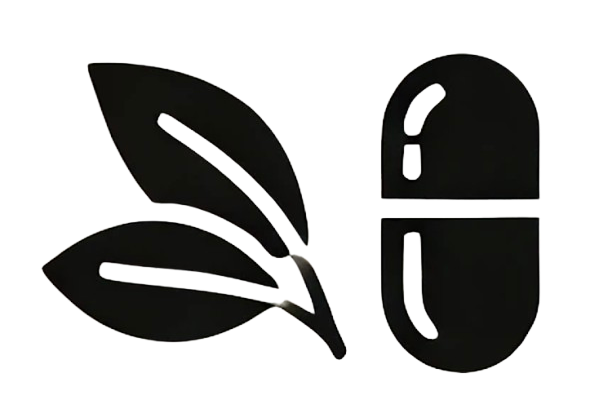Biotin, also known as vitamin B7 or vitamin H, is a water-soluble vitamin that plays a crucial role in maintaining healthy hair, skin, and nails. Often referred to as the “beauty vitamin,” biotin is essential for promoting hair strength and growth. While it is naturally found in various foods, supplementation has become increasingly popular as a means to combat hair thinning and promote stronger, more resilient hair. In this article, we will explore the functions of biotin in hair health and discuss how it supports hair growth and structure.
What is Biotin?
Biotin is a member of the B-complex family of vitamins, which are vital for converting food into energy. It acts as a coenzyme in the metabolism of fats, carbohydrates, and proteins. Specifically, biotin is involved in synthesizing keratin, a structural protein that is a key component of hair, skin, and nails. By supporting the production of keratin, biotin directly influences the strength and integrity of hair strands.
Biotin is naturally present in foods such as eggs, nuts, seeds, and leafy green vegetables. It is also produced by gut bacteria in small amounts. Despite its widespread availability in food, some individuals may experience biotin deficiency, which can lead to brittle hair, hair thinning, and other issues related to poor keratin production.
The Role of Biotin in Hair Growth
Hair is primarily made up of keratin, a protein that provides structure and strength to each strand. Biotin is essential for the synthesis of keratin, and therefore plays a direct role in the health and growth of hair. When biotin levels are adequate, keratin production is optimized, resulting in stronger hair that is less prone to breakage and thinning.
Biotin also supports the health of hair follicles, the structures in the skin from which hair grows. Healthy follicles produce stronger, thicker hair. Conversely, a lack of biotin can lead to weakened follicles, causing hair to become thin, fragile, and more likely to fall out.
Biotin Deficiency and Its Impact on Hair Health
Biotin deficiency, though rare, can lead to noticeable changes in hair health. Symptoms of biotin deficiency include hair thinning, hair loss, and brittle or fragile hair. In severe cases, individuals may experience a form of hair loss known as alopecia. Other signs of biotin deficiency may include dry skin, brittle nails, and rashes around the face.
Certain factors can increase the risk of biotin deficiency, including poor dietary intake, genetic conditions, and the use of medications that interfere with biotin absorption. Pregnant women, individuals with gastrointestinal disorders, and those who consume large amounts of raw egg whites (which contain avidin, a protein that binds to biotin and reduces its absorption) may be at higher risk of deficiency.
Benefits of Biotin Supplementation for Hair Growth
Biotin supplementation is commonly used to address hair thinning and promote stronger hair growth. Although most individuals obtain enough biotin from their diet, supplements can help those who are deficient or at risk of deficiency to maintain healthy hair. The benefits of biotin supplementation for hair include:
1. Increased Hair Strength: Biotin strengthens the keratin infrastructure, resulting in more resilient hair that is less prone to breakage.
2. Improved Hair Growth: By supporting the health of hair follicles, biotin can enhance the growth of new hair, especially in individuals experiencing thinning or hair loss due to deficiency.
3. Healthier Hair Texture: With consistent use, biotin supplementation may contribute to smoother, shinier hair by improving its structural integrity.
4. Prevention of Hair Thinning: For those with biotin deficiency, supplementation can help prevent further hair thinning and support overall hair health.
Dosage and Sources of Biotin
Biotin is available in various forms, including capsules, tablets, and powders. The recommended daily intake of biotin varies depending on age, gender, and individual needs, but a general guideline for adults is 30-100 micrograms per day. Biotin supplements often contain much higher doses than this, as it is a water-soluble vitamin and any excess is excreted through urine. However, it’s important to consult with a healthcare provider before starting any new supplement regimen.
In addition to supplements, biotin can be obtained from dietary sources. Foods rich in biotin include:
• Eggs (cooked)
• Almonds, walnuts, and peanuts
• Sweet potatoes
• Spinach and kale
• Whole grains
• Avocados
By incorporating these biotin-rich foods into your diet, you can naturally support hair growth and overall hair health.
How Long Does It Take to See Results?
While biotin supplementation is widely regarded as beneficial for hair health, it’s important to note that visible results may take time. Hair growth is a slow process, and it typically takes several months of consistent supplementation to notice improvements in hair thickness, strength, and growth. Patience is key when using biotin supplements, as individual results can vary depending on the severity of deficiency and the overall health of the hair.
Conclusion
Biotin is a vital nutrient for promoting hair strength, growth, and overall health. As an essential component in the production of keratin, biotin plays a direct role in maintaining the structural integrity of hair, making it stronger and more resilient to damage. While most individuals can obtain sufficient biotin from their diet, supplementation can be particularly beneficial for those experiencing hair thinning or loss due to biotin deficiency. By supporting keratin production and follicle health, biotin is a valuable tool in maintaining vibrant, healthy hair.
